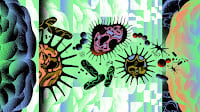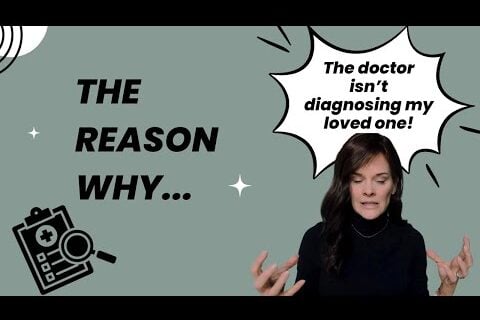
This Diet Helps Keep Alzheimer’s Away
Eating properly can help keep Alzheimer’s away, according to registered dietician and nutritionist Vicki Shanta Retelny. Watch now to learn more.

Eating properly can help keep Alzheimer’s away, according to registered dietician and nutritionist Vicki Shanta Retelny. Watch now to learn more.

More proof that you are what you eat, at least to a certain extent. Researchers found those who follow the MIND or Mediterranean diet showed fewer signs of Alzheimer’s in their brains. Learn more.

Scott doesn’t remember his daughter or his wife, but he does remember the love they share. Watch how his daughter Bailey handles the situation in this CBS News presentation.

IDPs, a form of antioxidant contained in meat, are effective in relieving fatigue and preventing dementia. Learn more.

Frontotemporal Dementia, FTD, is the most common form of dementia in people under age 60. Why isn’t it better known?

What does it feel like to be diagnosed and live with early-onset Alzheimer’s? Pam Montana and Chris Hannafan explain. Watch now.

Older adults who took a daily multivitamin showed higher scores in global cognition, memory and executive function, researchers found.

Hogeway Village is a community of people with dementias such as Alzheimer’s. See the advantages of a custom-tuned environment offering familiar surroundings.

VIDEO + ARTICLE: Yale researchers have found the debilitating symptoms of Alzheimer’s may be the result of swelling caused by amyloid plaques in the brain.

RESEARCH EXCERPT: Is Alzheimer’s caused by a germ? $1 million goes to anyone who can answer that. If the germ theory gets traction, it could

Rosemary naturally works like Aricept® (generic: donepezil), treating Alzheimer’s by blocking AChE. Learn about rosemary’s dementia-fighting benefits from Dr. J. Duke.

VIDEO + CHECKLIST OF 15 WARNING SIGNS: Memory problems caused by Alzheimer’s make driving unsafe. See how. Watch this thought-provoking video to open up the discussion with family members, friends and patients.

Caught in a frustrating loop of suspecting dementia in your loved one, only to be denied by doctors? Join me as we explore the untold story behind dementia diagnoses. Don’t miss out on key insights that can change everything!

Three important dementia studies focus on HS-AGING, a type of dementia almost as common as Alzheimer’s in the 85+ group. Yet few people have heard of it. Why? What makes it different?

An intriguing study of 120 grandmothers might surprise you. Doctors know socially engaged people have better cognition and less dementia. But can a person get too much of a good thing? What’s the right balance?

Enjoy this great duet between a musician with dementia and his son. A triumph of spirit over Alzheimer’s! Sing-a-long if you like!

It looks like a sneeze cannot give anyone Alzheimer’s. While Alzheimer’s abnormal disease proteins do spread from cell-to-cell, they are not “infectious”. Check out the facts.
No spam, only news and updates.